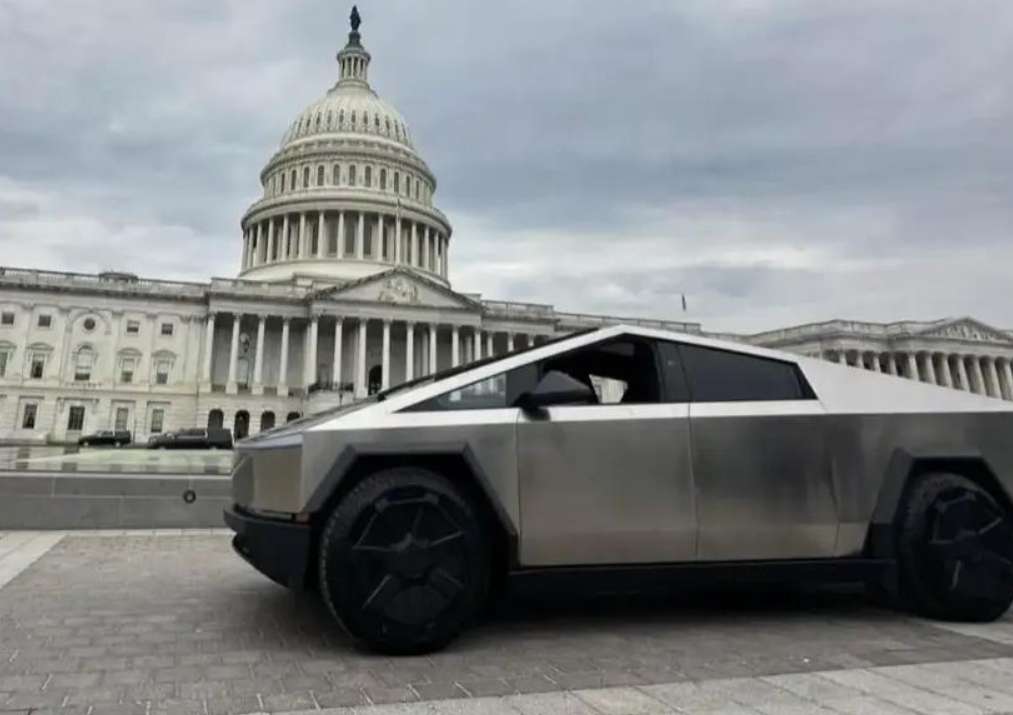On February 13, a significant decision was made regarding the federal contract of 2025, leading to the cancellation of a proposed $400 million purchase of armored vehicles from Tesla. This move has drawn widespread attention and sparked debates regarding government contracts with private firms, especially in a politically charged environment.
Tesla has long been at the forefront of the global electric vehicle (EV) market, recognized not just for its technological advancements but also for its competitive strategies across various international markets. The recent turbulence with the U.S. government contract, alongside its performance in the ever-expanding Chinese market, underscores the complex dynamics at play in this international arena, reflecting the underlying competition between China and the United States in the EV sector.
The U.S. government’s contract suspension highlights the potential conflicts of interest that can occur in government dealings. Last September, former President's administration initiated a proposal to acquire armored electric vehicles, with Tesla being the sole company that expressed interest in manufacturing these vehicles. While Tesla's design proposal drew interest, concerns arose regarding transparency in contracting processes and potential conflicts of interest, especially given Elon Musk's high-profile donations to political campaigns and his close ties with members of the current administration.
This dynamic—with its blend of technical, economic, and political interests—illustrates how collaborations between government and private firms can be fraught with complications. The current U.S. political landscape necessitates stringent scrutiny over transparency, efficiency, and potential conflicts, making Tesla's government collaborations under intense examination. As the political climate continues to shift, any initiatives to engage with Tesla face increased skepticism.

In stark contrast, Tesla’s journey into the Chinese market unfolds along a markedly different trajectory. Following the inauguration of its Shanghai Gigafactory in 2019, Tesla’s foothold in China has only strengthened, marked by significant growth and increasing market share. By 2023, Tesla gained entry into various local government procurement lists across different provinces, with national media suggesting that this positions the company favorably to expand its operations further in China.
The Chinese government seems to prioritize innovation and market performance over national origin, allowing Tesla to thrive despite its American roots. The competitive landscape in China, with notable domestic players like BYD and Xpeng, presents challenges but also opportunities for Tesla. By continuously enhancing product quality, reducing costs, and catering to consumer preferences, Tesla has managed to carve out a significant presence in an increasingly crowded market.
Examining the broader competitive scenario, the rivalry between U.S. and Chinese automotive manufacturers, especially in the EV sector, is intensifying. China has designated electric vehicles as a strategic industry, spearheading policies that have facilitated the rapid rise of local manufacturers like BYD, Xpeng, and NIO, which are asserting themselves as formidable forces in the global EV market.
Despite being a foreign entity, Tesla holds a major position in the global landscape. In China, Tesla's presence has spurred local innovation, pushing domestic firms to enhance their technological capacities. The upcoming Cybertruck stands as a potential benchmark for future armored electric vehicles, though it still grapples with questions surrounding market demand and quality assurance. Traditional automakers like BMW and Mercedes-Benz are accelerating their electrification efforts as well, planning to enter niche segments such as armored EVs, with BMW estimating to supply around $40 million worth of SUVs.
The contrasting attitudes of China and the U.S. towards foreign enterprises become evident through Tesla’s operational landscape in both countries. The U.S. government’s approach is marked by a blend of collaboration and wariness, influenced by the domestic political climate, which casts a shadow of scrutiny over private enterprises like Tesla.
In contrast, the Chinese government exhibits a more welcoming and inclusive stance, enabling Tesla to establish a foothold without undue hindrance from its American background. This atmosphere permits Tesla to leverage its innovations and product advantages, presenting opportunities for other foreign enterprises wishing to penetrate the Chinese market.
The suspension of the government contract for Tesla reflects the broader implications of domestic U.S. politics on corporate cooperation, while the company’s successes in China illustrate the country’s more liberal approach towards foreign investment. This scenario encapsulates not merely Tesla's corporate struggles but also the intricate dynamics of competition in the EV sectors of both countries. With the rapid evolution of the global EV industry, the rivalry between American and Chinese firms is expected to intensify, placing Tesla in a precarious position influenced by global political and economic circumstances.
To navigate this complex landscape, companies must remain vigilant to changes in the international market, consistently innovating to bolster their competitiveness. Additionally, the attitudes of various governments towards foreign enterprises will continue to play a pivotal role in shaping the future trajectory of the global electric vehicle market.